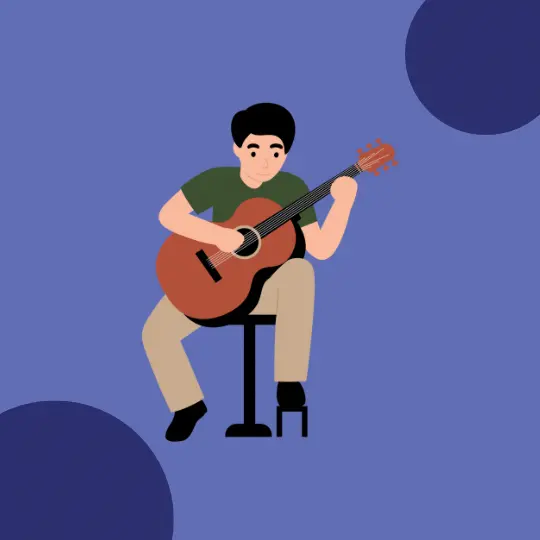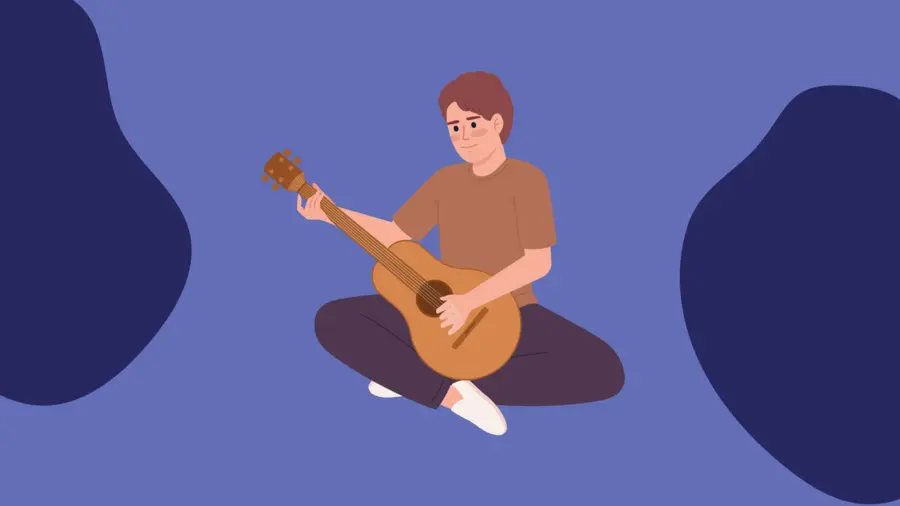Playing the guitar is an enchanting realm of music that unveils numerous avenues for creative self-expression. If you're embarking on your guitar journey, this guide is tailored to you. Within these pages, you will discover the initial steps to embark upon your guitar learning voyage, the fundamental aspects of mastering this instrument, and the indispensable guitar techniques that demand your attention. As you take your initial strides into the realm of guitar, you stand on the cusp of a captivating odyssey, one that promises not only joy but also the ability to articulate your emotions and thoughts through the language of sound. Let's commence our guitar instructional journey!
Learning to play guitar – why start?
Playing the guitar can be an enjoyable pastime, offering a wealth of satisfaction and delight. For novice guitarists, it serves as an excellent means to cultivate musical aptitude and amass valuable experience. Whether you aspire to become a professional musician or simply derive pleasure from strumming chords for yourself and loved ones, the journey of learning to play the guitar has the potential to fulfill your aspirations. If you're commencing your musical voyage, the initial step revolves around selecting the appropriate instrument.
A beginner's guitar need not be exorbitant or intricate in design. You can commence your learning journey with either an acoustic or electric guitar, contingent on your musical inclinations. The decision regarding the guitar to embark upon your musical expedition can be pivotal. However, there's no obligatory need to invest in a costly instrument or sophisticated gear at the outset.
The choice between an acoustic or electric guitar often hinges on your musical proclivities and the genre you aspire to explore. An acoustic guitar exudes a pure, unadulterated sound, ideally suited for serenading with acoustic ballads and folk melodies. Conversely, an electric guitar unlocks a vast spectrum of sounds and musical genres, especially within the realm of rock and electronic music. Regardless of your selection, the crux lies in discovering a guitar that kindles your inspiration and fosters a regular practice regimen for honing and elevating your playing skills.

Guitar Course: Self-Taught or Teacher-Taught?
When considering how to embark on your guitar learning journey, you confront two primary choices: independent learning or guided instruction. Opting for an online guitar course can serve as an excellent stepping stone, particularly if you're undecided about committing to guitar lessons from an instructor at this stage. Online courses present a favorable starting point, especially if they represent your primary avenue for musical education. In the initial phases of learning, the emphasis is on skill acquisition and the assimilation of intellectually associated concepts. As you navigate this path, it becomes pivotal to select a method that aligns with your learning style and enhances your enjoyment.
Here are several fundamental aspects that will be addressed in your instruction:
- Gain proficiency in the proper guitar positioning for comfortable and precise playing.
- Acquire the crucial skill of tuning your guitar, as only a well-tuned instrument produces harmonious sounds.
- Commence your journey with basic chords like C, D, and G, forming the foundational elements of numerous compositions.
- Grasp essential rhythms and fingering techniques, which are key to achieving fluency.
- Although not imperative for a beginner, acquainting yourself with rudimentary musical notation can facilitate your further musical growth.
Learning to play guitar chords is the key to musicianship
Mastering the fundamentals of guitar playing constitutes a crucial aspect of the learning process. Nurturing your understanding of chords demands patience and consistent practice. Proficiency in chords stands as a pivotal milestone in mastering this musical instrument. Embarking from a challenging starting point, regular dedication and patience yield tangible results. Chords resemble puzzle pieces, with each chord forming an integral part of a broader musical canvas. As you proficiently grasp a selection of fundamental chords, you unlock the gateway to performing a myriad of songs and composing your melodies. Chords serve as the architectural foundation, imbuing music with its structural form and emotive depth.
Here are a handful of essential chords well worth acquainting yourself with:
- chord C: Among the simplest chords, it serves as the cornerstone for numerous compositions;
- chord G: Another foundational chord that finds its place in many beloved songs;
- chord D: Another indispensable chord frequently encountered in musical compositions;
- chord E: Familiarity with the E chord is highly recommended, as it enables you to tackle a plethora of rock and pop tunes.

There exists no magical formula for mastering the guitar. The key to success resides in consistent practice. Dedicate time to guitar playing each day, fostering the development of your skills and progressing toward becoming a proficient guitarist. Strive to allocate several hours daily to your practice sessions. Should you seek online courses, explore the TeMa platform. Embarking on the journey of learning to play the guitar unfolds as an exhilarating adventure, one that promises enjoyment and fulfillment. Whether you're a neophyte or possess prior experience, cherishing the music and the learning process remains paramount. Keep in mind that every virtuoso guitarist initiated their journey from square one. Armed with the foundational insights into learning to play, you can commence your musical odyssey. The rewards of acquiring this skill are immeasurable, as music stands as an enduring source of lifelong delight. Let this melodious adventure commence without delay!


